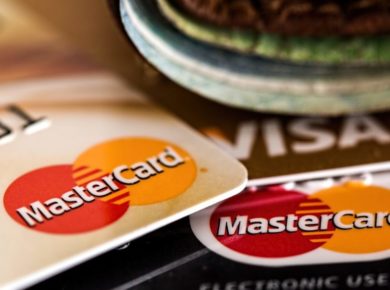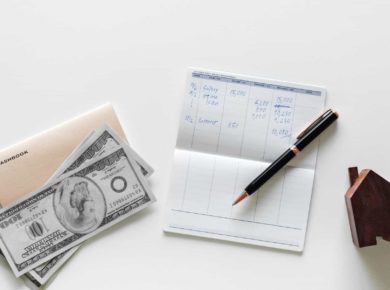I do not like debt. In the very early days of my adulthood, I fell into a lot of debt, and I was not a fan at all. Some people are fine to go about their days while owing thousands upon thousands of dollars to the bank, but that’s not a sustainable existence for me. Frankly, it’s not sustainable for anyone; some people are just better and turning a blind eye toward their finances.
Even with debt being a scourge on humanity, lending is still a massively profitable industry, and borrowed money allows a lot of people to get ahead in life. So while I hate owing and I hate paying interest, I understand that loans are an important part of our economy.
If you’re thinking about taking on a loan, I want you to be able to explain exactly why you’re making that move. If you can’t make a solid case for how a personal loan will improve your financial situation, I don’t think you should get that money. That’s why I’m laying out these five reasons why you shouldn’t – or should – consider a personal loan. If you have all the right answers to these issues, I guess you can head over to the bank. Otherwise, it’s back to the mill so you can earn the cash you need.
1. You Don’t Need the Money
The best place to start is the most obvious: why on Earth do you want to go into debt? There are a million reasons why it’s nice to have more money, which makes a small loan far more tempting than it should be. But when you consider borrowing from a bank or a private lender because an extra $5,000 will help you through the holidays, you put your financial future in serious jeopardy.
If you’re going to take out a personal loan, putting your livelihood and credit score squarely in the hands of a lender, you need to have an excellent reason why. Not only that, you need to know how the loan will help you generate money to pay off that balance. The funds you borrow have to help you out financially, not put you deeper into the red.
If you stick to that rule – borrowing is not allowed if it deepens your debt – you won’t do something like take out a big loan for a new car or a European vacation. You might need a new car, and you might really want to see the Louvre, but you can save money to pay for those things. Download an app that helps you set savings goals, or get rid of cable for sixth months and put that money aside. Borrowing for an unnecessary expense shouldn’t even be a consideration.
Now, if the loan is to consolidate other debt, that’s a different story. If you have student loans or credit card debt lingering from your young and carefree days, transferring those balances to an account with a lower APR makes perfect sense. If you can lower your interest rate by four or five percent on a few thousand dollars, your monthly savings will shoot up and the debt will be gone much faster. In this case, a personal loan improves your finances and is actually worthwhile.
That’s the rule you need to follow and you can’t allow for exceptions. No taking out personal loans unless the money leads directly to a better financial situation. Borrow money when it helps you meet financial goals; save money when you want to buy a plane ticket.
2. The Loan You Can Get Is Insufficient
You know why people rack up credit card debt? Because there are always more things to buy. It starts with a little spending, then a little more, and pretty soon paying for things with money you don’t have becomes habitual. Is there any reason to think loans and mounting debt won’t lead you down the same path?
Let’s assume you have a good reason to take out a personal loan. For the sake of argument, we’ll pretend you need a high-end video camera for a content marketing job. Most of the time, I’d rather you save money for an expense like this, but in this case it’s because owning this camera will lead to immediate employment and help your career.
If the camera costs $1,700, how much should you borrow? If you think this is a trick question, you’re absolutely right. There’s no need to take on more debt than necessary, and yet people do exactly that all the time. Their thinking is that, since the loan is already going to be processed, I might as well add on another $500. No! Increase the loan amount to pay for essential things, but don’t just tack on extra debt because you have the freedom to do so.
Now that you’ve talked yourself out of borrowing too much money, you have to consider the actual repayment process and whether the math adds up. Are you spending nearly $2,000 in order to make $300? If that’s the case, you need to plan on earning $300 at least six more times. How long will it take you to do that? This timeline matters a great deal, because every month your loan doesn’t get repaid, interest payments take away more of your future funds.
Even if one day of work covers the cost of the new camera, is that actually the end of your spending? Do you need to upgrade your computer, editing software and sound equipment? Like I said earlier, there’s always more stuff to buy. There’s a good chance your initial loan won’t cover all of your expenses, and then you either have to borrow again or cut your losses.
You have to know exactly what you need before you borrow money. If you don’t, you’ll find yourself in a sticky situation sooner than later.
3. Borrowing Might Hurt Your Credit More Than It Helps
Improving a credit score is a common motivation for borrowing money. Damaged credit also causes a lot of loan applications to be rejected. When applying for a personal loan, the state of your credit and the future of your FICO score should be front and center.
It’s important to remember that borrowing doesn’t directly correlate to improved credit. Paying down a loan and proving that you aren’t a risky lender does have credit benefits, but that process takes time. When you first acquire a substantial amount of debt, your credit score suffers a little because of the reduced debt/credit ratio. Applying for a personal loan just to improve one’s credit score doesn’t actually make a lot of sense.
More importantly, if you currently have bad credit and seek out a loan in hopes of improving your score, there’s a good chance you’ll get less-than-impressive terms on the money you borrow. Even if you’re taking out a small personal loan, and you’re using it to consolidate other loans, it’s not worth it if you’re stuck with a huge APR. In this situation, you’re better off opening a credit card that you use sparingly as you slowly improve your score. That way you’ll only pay interest if you run up a balance, which you absolutely cannot afford to do if you’re trying to improve your credit.
When you borrow money, you can’t assume it’s going to do good things for your credit standing. If you have a sure-thing investment that will immediately double your money and solve your credit problems, go ahead and take out that loan. Before you do so, however, you should know that about .00002 percent of investments are “sure things.”
4. There Are More Fees Than You Think
Paying down debt usually causes more strife than people are prepared for. When you first sign off on a loan, repayment seems like a distant matter you don’t need to concern yourself with right away. Then, after a few years, you realize how stretched your finances are with these annoying monthly payments. And on top of all that, you’re getting hit with fees you didn’t expect to deal with.
These extra expenses often get tucked away within the fine print. The usual suspects are origination and closing fees, which can be minimal in some cases and astronomical in others. While these payments don’t arise with any regularity, paying a five percent fee upon the approval of a $50,000 loan is less than ideal.
You have to remember that lenders aren’t just looking to get paid back; the purpose of a personal loan is to make a profit off interest payments. For loans that aren’t going to deliver much in the way of interest, financiers will often look to make up those funds with additional fees. You might have substantial closing costs that go up even more if you pay off the loan earlier than expected. Think about that – in an effort to pay down your loan quickly and avoid excessive interest payments, you might incur additional fees for reimbursing the lender too quickly.
If you remember one thing about personal loans, it should be that lending is a business. No one distributes funds in hopes of making even money, so you shouldn’t be surprised when lenders start coming up with lots of clever ways to get more cash out of you. If you only consider the interest rate, there’s a good chance you’ll soon get blindsided by additional fees.
5. See Reason Number 1
Seriously – why do you think you need this money? What is it about extra debt that you find so appealing? If you’re willing to pay money in order to get money (sounds kinda foolish when you put it like that, right?), you better really, really need that cash. Unfortunately, I’ve found that people who borrow money don’t usually need to do so.
For example, let’s talk about buying a house. Yes, it’s nice to own a home and not throw away rent each month. However, have you thought about the real-life consequences of taking on a hefty mortgage? If you have to pay the bank $3,000 each month, and something happens that makes it impossible for you to keep up with those payments, you’ll find yourself in a real bind. As nice as it is to invest in real estate, becoming tied down with a 30-year mortgage doesn’t really count as an investment.
If borrowing money for a house is a bad move, what commodities or assets are actually worth it? You certainly shouldn’t take out a loan to go on vacation or pay for a wedding. It also seems pretty counterintuitive to borrow money for a car that will immediately and significantly depreciate in value. The more you think about it, the harder it will be to justify a taking out a loan.
The only real exception is when the borrowed money counts as an investment, which is to say the loan will directly enable you to make money. If you borrow to buy a house for you and your family, you’re not going to make money off that loan. However, if you take out a personal loan to fix and flip a house, that’s a different story. In that situation, the ends justify the means.
Plain and simple, I don’t think you need to borrow money if it won’t improve your earning potential. If you feel like you need money because you’re constantly strapped for cash, you should work to fix how you earn, save and spend. Personal loans only help those who already have their finances figured out. Rarely, if ever, will borrowed money take a person who’s struggling and turn him or her into some sort of tycoon.
If you read this post and come away feeling like it’s time to borrow money, I hope it’s because you have a great investing opportunity on your doorstep. For everyone else, applying for a loan probably won’t solve your problems. Instead of looking for lenders who will “give” you money, your objective should be to grow the money you already have. By investing and reinvesting, you can create your own wealth and become financially independent. So stop reading about loans and go put your money to wor






